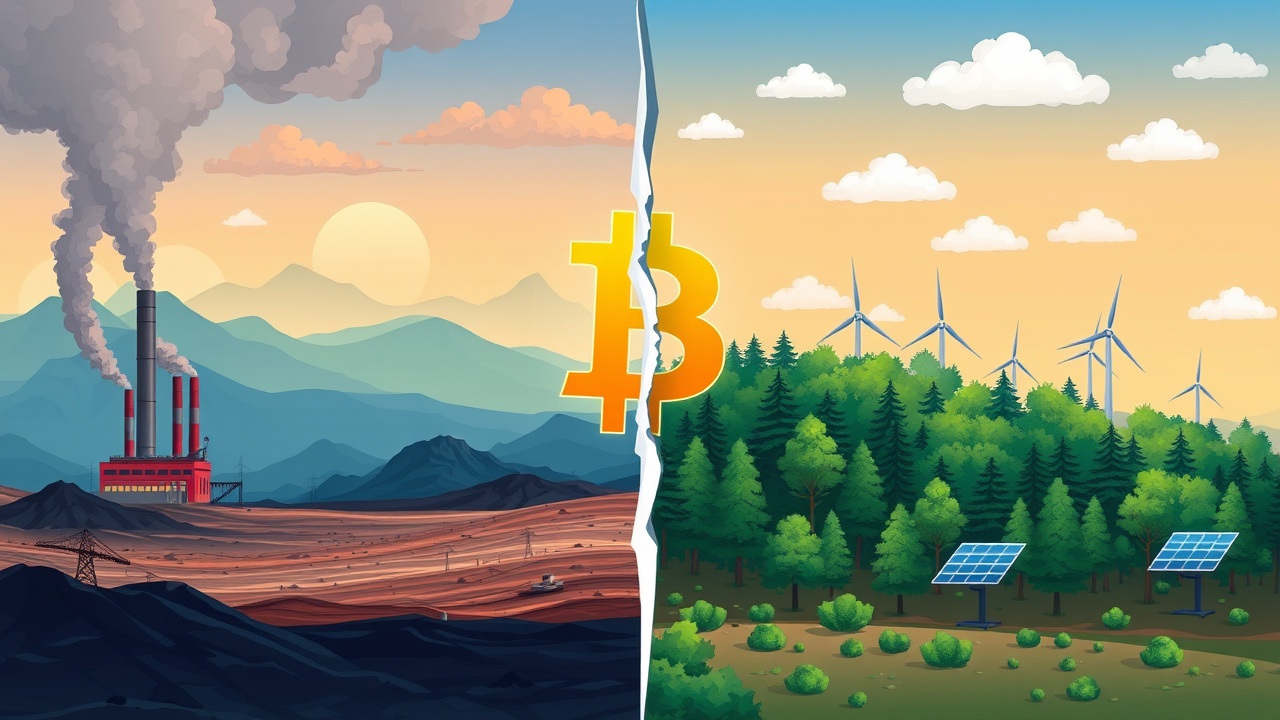Introduction
The environmental impact of Bitcoin mining has become a hotly debated issue, with discussions often comparing its energy consumption to that of entire nations. Proponents of Bitcoin contend that the narrative surrounding its ecological footprint is overly simplistic, insisting there are also aspects in which Bitcoin contributes positively to environmental sustainability.
Understanding Bitcoin Mining
At the heart of Bitcoin’s function is a system known as “proof-of-work,” first conceptualized in 1993 by researchers Cynthia Dwork and Moni Naor. This mechanism safeguards the network from spam attacks by requiring computational work to confirm transactions. Initially, Bitcoin mining could be performed on standard home computers, but as the cryptocurrency gained popularity, the difficulty level intensified, thereby escalating energy requirements.
Today, Bitcoin mining is predominantly carried out by massive facilities specifically designed to perform these complex calculations swiftly, often using advanced machinery to secure rewards by solving digital puzzles faster than competitors.
Energy Consumption and Environmental Impact
As of 2018, Bitcoin mining reportedly consumed as much energy as countries like Nigeria and Denmark. Its environmental ramifications are marked by substantial electricity consumption, large volumes of freshwater usage, and significant electronic waste generation. According to analyses from Digiconomist, a single Bitcoin transaction can utilize over 1,100 kWh of electricity—comparable to the energy used by an average U.S. household over 38 days—and it produces notable metrics of carbon emissions and electronic waste.
Critics of Bitcoin mining highlight that it utilizes up to 90% fossil fuels, raising concerns about its long-term sustainability.
This reliance on non-renewable energy sources provoked Tesla to cease Bitcoin payment acceptance in 2021 due to ecological concerns. Meanwhile, Ethereum shifted from a proof-of-work to a less energy-intensive proof-of-stake system as part of its commitment to reducing its carbon footprint.
Challenging the Narrative
Research from the Digital Assets Research Institute (DARI) challenges mainstream narratives about Bitcoin’s environmental damage, suggesting that most published data stems from flawed studies dating back to 2018. Despite ongoing debates, there’s a notable trend where mining operations are beginning to pursue greener energy sources, with various initiatives aiming to harness excess energy and utilize renewables effectively.
One innovative example is a bathhouse in New York City that mines Bitcoin while using excess energy to heat its pools, showcasing a dual-functionality approach that minimizes waste. Additionally, in Ethiopia, the Grand Ethiopian Renaissance Dam is being used to power clean Bitcoin mining operations.
Future Trends and Conclusion
Recent reports indicate that Bitcoin mining could be pivoting towards reducing carbon emissions, and some companies are even asserting their carbon-neutral status. However, accountability and transparency regarding the actual emissions from Bitcoin mining remain murky, as comprehensive data on mining operations is scarce.
Proponents for Bitcoin also draw comparisons to the traditional banking system, arguing that banking operations are not significantly more environmentally friendly than Bitcoin mining.
As the industry stands, there is a clear divide where some mining activities are progressing towards more sustainable practices while others still heavily rely on traditional energy sources. A report from the MiCA Crypto Alliance forecasts that by 2030, sustainable energy could potentially power 70% of the Bitcoin network, indicating a shift towards greener mining practices. In conclusion, while the Bitcoin mining industry still faces serious ecological challenges, there are emerging trends toward more environmentally conscious operations, suggesting not all mining is created equal.




